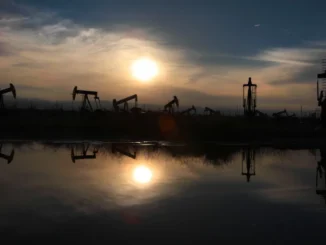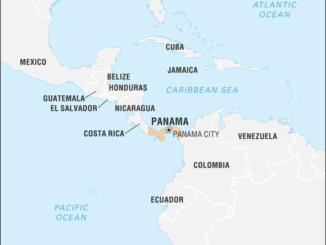
After the Second World War crude oil and control of its production became an important driver of global geopolitics. Crude oil became an essential component in a world economy powered by fossil fuels and experiencing a massive post-war economic boom. Oil’s crucial nature as a fuel saw it become a primary driver of the Cold War conflict as the U.S. and USSR battled for ideological control of the world. That saw both superpowers vie for ideological and political control of the Middle East to gain control of the region’s substantial petroleum reserves to guarantee their energy security. It was U.S. meddling in Iran, OPEC’s fifth largest oil producer, which triggered the Iranian revolution that, along with the schism between Shia and Sunni Islam, is at the heart of the regional conflict today.
In May 2018, President Trump withdrew the U.S. from the Joint Comprehensive Plan of Action (JCPOA), otherwise known as the Iran nuclear deal, and hammered Teheran with strict sanctions. Those measures specifically targeted Iran’s petroleum industry which forms the backbone of the country’s economy. Oil is estimated to be responsible for generating almost a fifth of Iran’s gross domestic product, a third of government revenue makes up roughly 70% of exports by value. By choking Teheran’s access to global energy markets U.S. sanctions are crimping the government’s ability to expand production to boost gross domestic product and a key source of fiscal revenue. After sanctions were lifted, Teheran planned to lift petroleum output to as much as 3.7 million barrels daily by the end of 2017 but during 2018 Iran only pumped on average 3.6 million barrels daily. That fell to just under 2 million barrels of crude oil daily for November 2020 because of U.S. sanctions, which were reimposed in August 2018 when the Trump administration withdrew from the Iran nuclear deal.
While there were claims from the White House that this action was in response to Iran failing to comply with the agreement, the rationale for Trump’s decision has far deeper geopolitical motivations. Key was keeping erstwhile Middle East allies Kingdom of Saudi Arabia and Israel onside to ensure U.S. energy security. While the shale oil boom may have catapulted the U.S to be the world’s largest oil producer it does not necessarily guarantee energy security for the world’s largest economy. By preventing Iran from rapidly expanding oil production, Saudi Arabia’s preeminent leadership of the cartel was reinforced and it blunted Tehran’s designs to bolster regional influence. In exchange, the White House received greater influence within OPEC and over setting oil prices. Trump, without hesitation, used that to suppress oil prices during 2018 when Brent surged above $70 a barrel and briefly flirted with the $80 per barrel mark. This formed part of his strategy of driving economic growth without relying upon the Federal Reserve to print money and the inflationary, as well as fiscal impacts associated with that policy.
The supreme leader of Iran, Ali Khamenei, took an increasingly belligerent and antagonistic tone toward the U.S. since sanctions were reimposed. This includes Tehran extending assistance to the pariah socialist regime of Venezuela led by President Nicolás Maduro, where Russia has used the oil rich country’s crisis to gain considerable influence and control of crucial oil assets. Iran’s efforts in Venezuela reflect the tight relationship between the Kremlin and Tehran that developed during the Syrian civil war. Theran is providing tankers filled with gasoline to Caracas which after being unloaded are then used to export crude in defiance of U.S. sanctions, technical support to refit crucial energy infrastructure including refineries food aid arms. In a December 2020 Wall Street Journal article, the head of U.S. Southern Command asserted that elements of the Iranian Revolutionary Guard Corp’s Al-Quds Force were sent to Venezuela to support President Maduro. According to the Council on Foreign Relations, the paramilitary Al-Quds Force is the IRGC’s de-facto expeditionary force which has long been associated with assisting Shia insurgents and non-state paramilitary groups, including Lebanon’s Hezbollah in the Middle East. The urgency of the situation regarding Venezuela confronting Biden is underscored by claims that the terrorist group Hezbollah has established a transnational criminal network in Venezuela, with the approval of the Maduro regime. The militant Lebanese Shia group is also associated with narco-trafficking in Venezuela and has allegedly planned terrorist attacks, as well as forged ties with Venezuelan leftwing paramilitary groups and Colombian leftist dissident FARC and ELN guerillas. There is every indication that Biden needs to contain Iran’s activities in Venezuela which will not only, to a point reinvigorate the country’s oil industry, but strengthen Maduros’ grip on power and add to regional instability.



